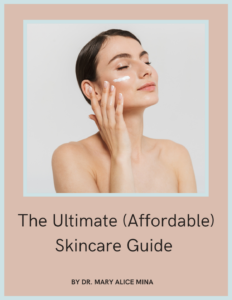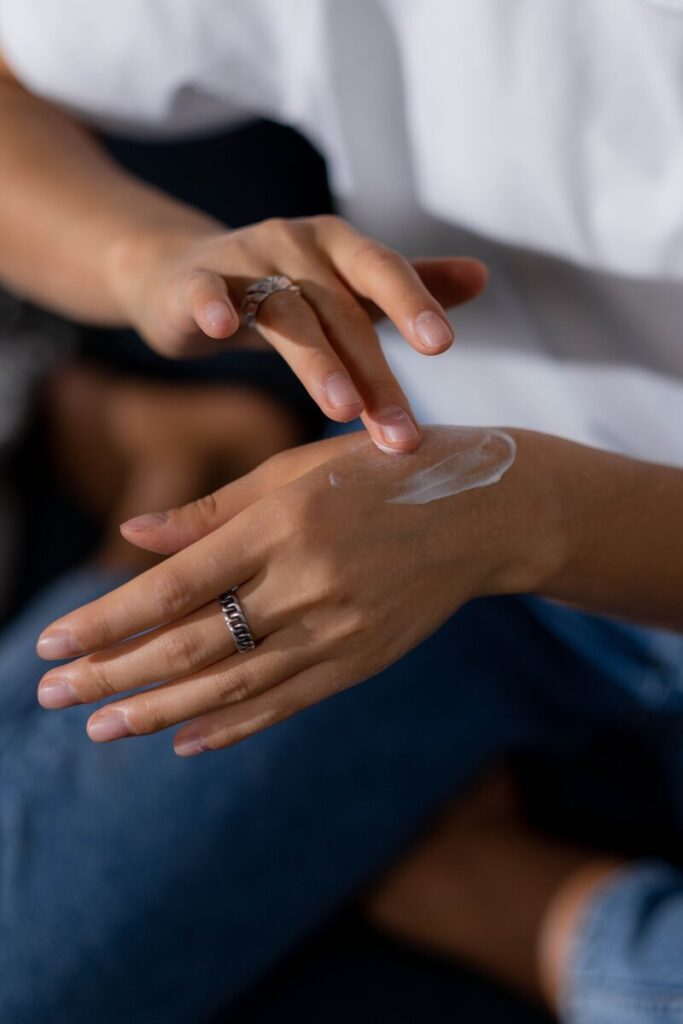With an abundance of skin care information readily available on the internet, it can be challenging to know who and what to believe. Nowadays, just about anyone can post and put themselves out into the public eye (or at least the digital landscape) as a so-called ‘skin care expert.’ Moreover, social media is home to many beauty bloggers and influencers who are often seen speaking positively about various skin care products (often paid to do this), even if they don’t actually believe in or use them!
With the average American woman spending over $300/month on skin and beauty care, and new products and treatments being introduced every year, it’s clear that there are marketing forces at work! So who and what should you believe when it comes to something as important as your skin health? And how do you know what’s true and what’s just hype?
I’ve said it before, and I’ll say it again: your best bet for healthy, beautiful skin is to first see a board-certified dermatologist. Dermatologists are medical doctors (M.D./D.O) with 4 years of medical training followed by a rigorous 4 years of internship and dermatology training at an accredited medical program. In the U.S., you can tell if your doctor is a board-certified dermatologist by looking for the letters F.A.A.D. after their degree. This means that they are a Fellow of the American Academy of Dermatology.
Why trust a dermatologist first and foremost with your skin care?
Dermatologists have the training and expertise to diagnose a wide range of skin conditions, from pigmentation to skin cancer, and help with preventative skin care. Since everyone’s skin is unique, dermatologists can help you develop a customized treatment plan that is tailored to your individual needs.

Dermatologists are experts at hair and nail conditions as well. Plus, dermatologists have been the leading pioneers and developers in the aesthetics space from toxins to fillers, developing lasers for aesthetic applications, tumescent anesthesia for liposuction, and so much more.
Your dermatologist is first and foremost concerned about your skin health and not promoting or pushing a certain skincare product. The same can’t be said for stores where sales people are compensated via commission. Often times at these same stores, a very simple drug store product will be rebranded and repackaged into what consumers believe to be a ‘luxury’ product with a luxury price tag to match! It’s important to know when something is worth the extra money versus when you are just being sold.If you’re going to invest the money and time into your skin, make sure you are getting the best guidance.
So how can you make sure you are getting good advice with your skin care products?
1. Consider the source
-Who is telling you to buy this and what is their level of knowledge regarding skin and skin health?
2. Consider the ingredients
-Flip the package over and actually look at the active ingredients. You may be surprised to see the same ingredients on a much less expensive product elsewhere.
3. What are you trying to treat/improve?
-Will this product actually help you achieve your treatment goals? If the product is designed for hydrating the skin yet you have oily skin, this may not be a good choice for you.
Check out my latest podcast episode with Dr. Jeffrey Dover where we discuss skin care truths versus hype and why where you get your information matters.
A new podcast episode comes out weekly on Tuesdays!










